Alexey Arzamazov: ‘People ask me what your favourite language is. And I say Tatar’
Earlier, there were also published self-study guides on Tatar, Udmurt, and a book on the Erzya language is planned
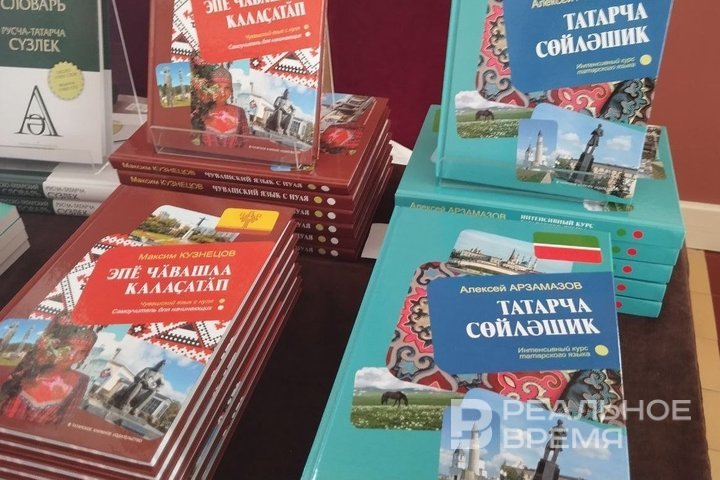
In Kazan, in the Tukai Hall of Nogai hotel complex, the Tatar Book Publishing House presented two books: self-study guides on the Tatar language by Alexey Arzamazov and on Chuvash by Maxim Kuznetsov. The authors emphasize that the publications are valuable because they were written by people who independently studied languages that were not their native languages and are now sharing their experiences.
Next in line is Erzya
In February 2023, Maxim Kuznetsov, an employee of the Laboratory of Multifactorial Humanitarian Analysis and Cognitive Philology of the Kazan Scientific Centre of the Russian Academy of Sciences, presented the book Tatar Language from Scratch: A Self-Study Guide for Beginners. He began writing it in 2016: the St. Petersburg resident attended Tatar language courses at the Kayum Nasyri Educational and Cultural Center and embodied his thoughts in a textbook. In 2022, he met Alexey Arzamazov, the head of the aforementioned laboratory. Interestingly, Arzamazov has Udmurt roots, he studied at the Philological Faculty of Udmurt State University, and in 2023 he published Mon Achim: A Self-Study Guide to the Udmurt Language.
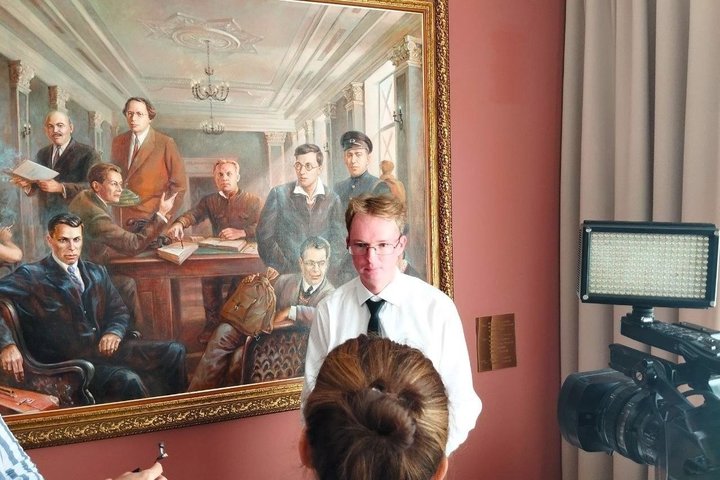
Maksim Kuznetsov was born in Izhevsk, his grandmother knows the Tatar language. He first saw an inscription in Chuvash when he went to the supermarket with her. The author told this story in the preface to a self-study guide to the Chuvash language, before the presentation of two books on Tatar and Udmurt in Izhevsk in March 2023. And already at the Kazan presentation, it was announced that both authors are preparing self-study guides for Mari (this book has already been published) and Chuvash. Now, a joint publication on Erzya, one of the languages of the Mordvin people, is in line.
As a result, all these books were published with the assistance of the Commission for the Preservation and Development of Native Languages in the series Languages and Cultures of the Peoples of the Republic of Tatarstan with 250,000 copies in total. As Arzamazov recalls, it all started with a meeting with Rais of the Republic Rustam Minnikhanov who listened to the polyglot's thoughts: “We, the youth laboratory of the Kazan Scientific Centre of the Russian Academy of Sciences, told him that the time had come to propose a new philosophy for teaching native languages. Mr Minnikhanov was fired up by this idea.”
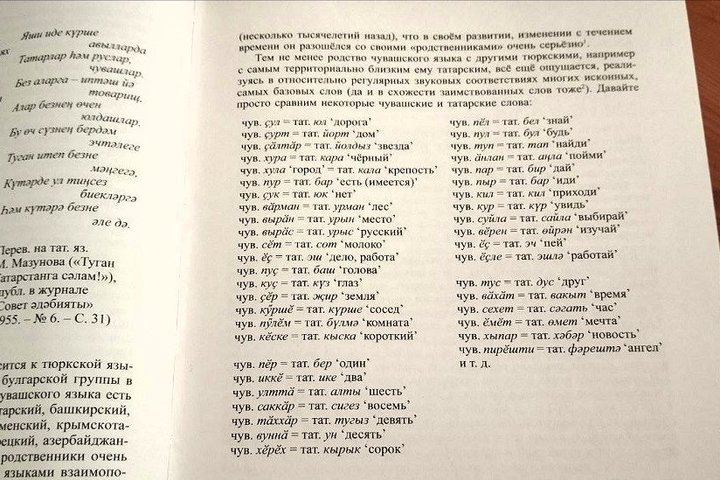
Learn a language in two months?
In April 2023, Kuznetsov, as a person who had already worked with 12 languages, began to learn a new one. He watched video lessons, read grammar essays. One of the books, he points out, cost him only 50 rubles. The list of references includes almost 80 titles. For example, a Polish textbook, which, according to Kuznetsov, had many mistakes.
In general, the author notes, native speakers often do not understand how to present information to a person who does not speak Chuvash. For example, the poem Narspi is cited as text material, and in it the stresses are sometimes completely wrong.
During the preparation process, Kuznetsov discovered the Manual for Self-Study of the Chuvash Language by Hierodeacon Nikolai (Pavlov) and became its editor.
As a result, Epĕ Chăvashla Kalçatăpappeared in five months. Of these, two months were spent on learning the language. Another three months were spent writing the book.
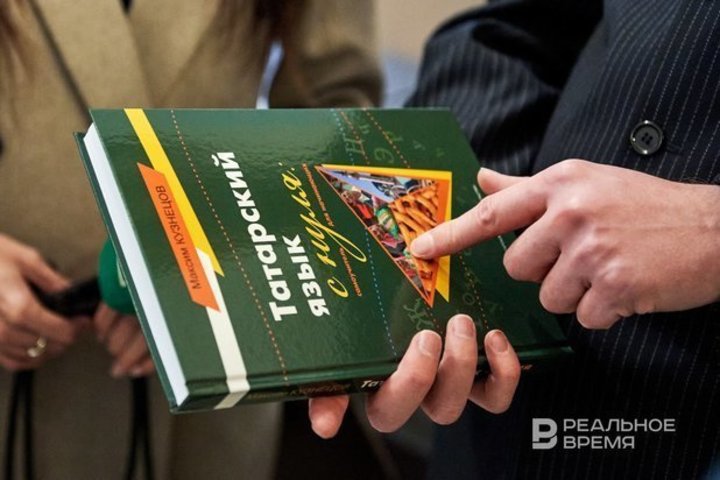
It is nice that at the very beginning the author points out the distant similarity between Chuvash and Tatar words. In general, knowledge of a language from the Turkic family will help in mastering Chuvash, which is the only representative of the Bulgar group. This helped Kuznetsov:
“The languages have a lot in common in structure. The vocabulary itself is either completely different or only vaguely similar.”
The book was reviewed by Professor Galina Semyonova of the Ulyanov Chuvashia University and Associate Professor Eduard Fomin of the Chuvash Institute of Culture and Arts. Unfortunately, the book does not contain dictionaries, but the author points out that they are now available. In addition, the book only includes 15 lessons, but the same number is ready, and it is unknown when they will be published. However, given that Kuznetsov's Tatar self-study guide is in demand, it is not far off.
In many ways, the author's new book is similar to his Tatar self-study guide. The topics are distributed from simple to complex, he tries not to overload the reader with terminology, and communicates with him. In addition, he does not use words in the texts that have not been learned before.
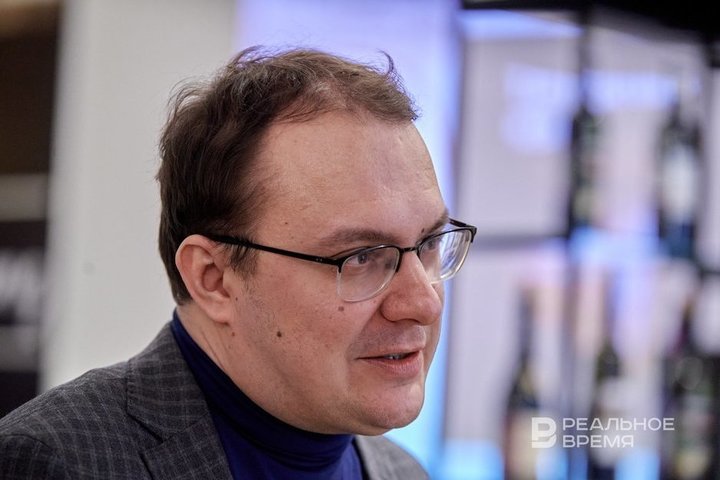
“We learned and fell in love with these languages”
Arzamazov presented Let’s Talk in Tatar. Why another book? As his student pointed out, in his book he paid more attention to grammar, while Arzamazov focused on the communicative component, dialogues, his goal is to get people talking. The polyglot is especially proud of the texts in which you can read about such singers as Ilkham Shakirov, Alfiya Avzalova, Salavat Fatkhetdinov and Elvin Grey. And also, for example, about the writer Amirkhan Yeniki.
“I have always proceeded from the point of view that it is necessary to know the languages of our ancestors. This is the strength of each person — in knowledge, awareness of native languages,” Arzamazov noted, but also pointed out that after writing the first books, he had to fight off critics. “You are not Tatars, how do you work with Tatar, this is wrong!” And Maxim and I answer that we speak Tatar, we have the right to offer our point of view. This is our credo, life program — to popularize the languages of our peoples.
“I have no doubt that the book will sell out. Maxim's book sold out immediately. There are many people who want to learn languages. And Tatar is not deprived of attention,” Arzamazov noted. “I work at RUDN university, it is a large, authoritative university. I communicate with Tatars, half of them do not know a word of Tatar. And they ask: where can I get a self-study guide?”
“We learned the languages ourselves,” Arzamazov pointed out. “This is a personal experience that we have lived through. Unfortunately, many start, but lack the time, motivation, and inner passion. But we did not give up, we learned and fell in love with these languages. They ask me: “Mr Arzamazov, what is your favourite language?” And I say — Tatar.”